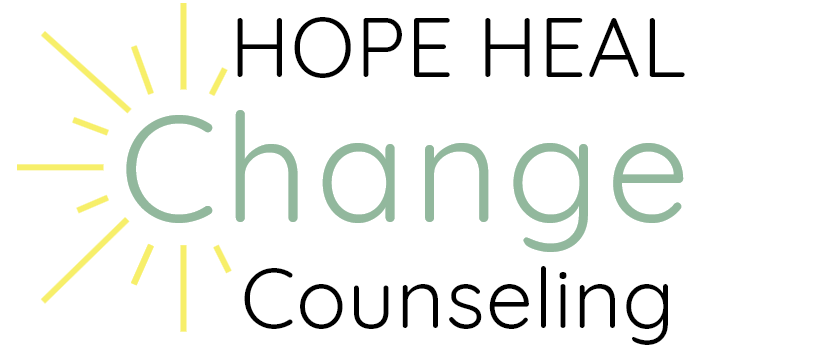Know Thyself
We believe that one of the tallest tasks in our lives is loving things that we don’t understand, including ourselves. While you read through our specialties know that the ultimate goal is great self-understanding
Areas of Specialty (scroll down to learn more):
- Anxiety/Panic
- Career Counseling
- Depression
- Divorce
- Grief
- Kids/Teens/Young Adults (ages 5 and up)
- Relationship Conflict
- Sports Counseling
- Substance Use
- Trauma
Learn more about our team to see what each therapist specializes in.
Anxiety/Panic:
With anxiety and panic attacks there is both good and bad news. The bad news is anxiety can be debilitating and lead to a constant state of worry, racing thoughts, and fear. With anxiety, we imagine the worst possible scenarios and sometimes that anticipatory fear can lead to a panic attack. Other times, panic attacks can come out of the blue and hit us without warning. Panic attacks have been described as the feeling of dying: tight chest, racing heart, feeling faint, sweating, racing thoughts, etc. The good news is that anxiety and panic attacks are very treatable via therapy.
Generally, Cognitive Behavioral Therapy (CBT) can be an effective treatment. Panic attacks can begin to dissipate after just a few sessions (depending on severity). It’s important to keep in mind that anxiety is a normal human function. Anxiety can keep us safe. When anxiety becomes consuming or prevents you from enjoying life, we recommend you seek treatment via therapy.


Career Counseling:
Josh was lucky enough to begin his counseling career as a Career Advisor at Oakland University Adult Career Counseling Center. There, he was trained in assessments, inventories and, of course, how to navigate job transition. Job loss, job transition, or re-entering the work force can present a variety of challenges. It can also take a mental, emotional, physical and spiritual toll. It’s important to seek guidance during such a difficult time and therapy can help.
Depression:
The word depression is thrown around loosely in our society today. “I’m feeling so depressed,” or “I’ve been so down and depressed lately.” There is a big difference between feeling sad and exhibiting features of depression. Depression is a very serious mental health concern. Depression can lead to feelings of minimal self-worth, anger, sadness/hopelessness, anxiety/agitation, and thoughts of suicide. Moreover, depression can have physical manifestations, too. Disturbance in sleep patterns, trouble thinking or concentrating, loss in sex drive, loss of interest in things you usually enjoy, reduced appetite, and aches/pains. If you think you meet some of these criteria, it’s important to seek help right away. If you’re having suicidal thoughts, please call the suicide hotline at 1-800-273-8255. An online chat is also offered. If you feel like you are in imminent danger to yourself, go to the nearest emergency room or call 911.


Divorce:
Divorce is a lot like grief work. It is an enormous loss in life. When we think about all the losses that can come with divorce- emotional, spiritual, financial, and the presence of that person -it can be overwhelming and mimic the stages of grief. Moreover, we have done therapy with many children whose parents are going through a divorce. A divorce is difficult enough for the two people separating but can be just as hard on the family unit. It’s important to work through your feelings while experiencing a traumatic event. If you have children, it’s important that they have someone to work with to help them through their parents’ divorce. It can be even more important to know they have the support of their parents. Therapy can help a lot in this way.
Grief:
In grief, life changes without your permission. Grief comes in many different forms and is highly individualized. In other words, there is no right or wrong way to move through the grieving process. Often in grief, it is up to the grieving person to seek out their own support. This doesn’t mean that there aren’t people who love them dearly. However, oftentimes everyone around them is grieving as well, making it difficult to be there for one another.


Kids/Teens/Young Adults:
It is more difficult than ever to be a young person. Constant connection, higher expectations, and the need for instant gratification has caused anxiety, anger, low self-esteem and depression. As a kid (and even as an adult) a lot of our self-worth comes from peer approval. Now that teens and young adults are constantly connected to each other, there is endless opportunities for disappointment. Working with minors is a different situation and requires support from parents. But together, great things can happen for young people in therapy that have a lasting ripple effect in their lives.
Relationship Conflict:
While we do work with couples, much of our work deals with people working through a tough relationship conflict. This could be with your significant other, family member, friend, boss or neighbor. In our sessions, we explore the root of the conflict and begin to discuss how to handle the conflict. This often leads to conversations about communication styles, self-efficacy and self-identity. The worst thing you can do if you’re having a conflict with someone is suppress your feelings. This will lead to resentment and an emotional distance which is very hard to counteract. Working through relationship conflict is healthy and can lead to a happier life. Studies often show that rich and gratuitous relationships lead to a longer and more meaningful life.


Sports Counseling:
We feel so lucky to be able to say that we are affiliated with the Detroit Lions organization as a part of their wellness team. However, long before that connection, we have worked with high-level high school and college athletes. We’ve worked with a variety of presenting concerns with athletes. This includes basic mental health monitoring, performance enhancement, mindfulness, injury recovery, and more. Working with athletes is a joy and presents a unique challenge. These folks usually have high expectations for themselves and aren’t always used to “slowing things down”. However, sports counseling and sports psychology is trending up in American sports. Many high-level athletes are finding it worth the investment.
Substance Use:
Struggling with substances takes many different forms. Each person involved has a unique story for how they got to where they are. Substance use not only affects the user, but substance use radiates out, affecting everyone that cares about the user. Tara has a specialization in substance use and has worked in substance clinics for a number or years. Since joining Hope Heal Change Counseling, she has taken on all prospective cases that have to do with addiction.


Trauma:
Josh, the founder of Hope Heal Change Counseling, calls trauma the “Disease of Self-Hate.” A traumatic event, or series of traumatic events, can change the course of our lives. It alters how the brain perceives the world around you. Specifically, people that have experienced trauma are more likely to be in fight-or-flight response more often and for longer amounts of time (the brain is altered in many other ways). Trauma can lead us to this place of “who will want to deal with me and all my stuff? Best to isolate myself from the world.” If you’re reading this, please know that there is a path to a happy life. We will ask you to really consider the relationship with a lot of different parts of yourself and, together, we will rebuild your relationship with you in a healthy and loving way.
